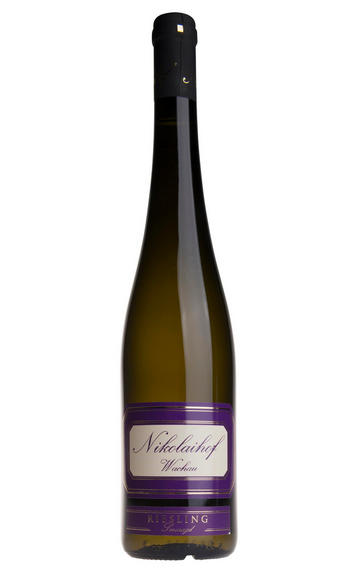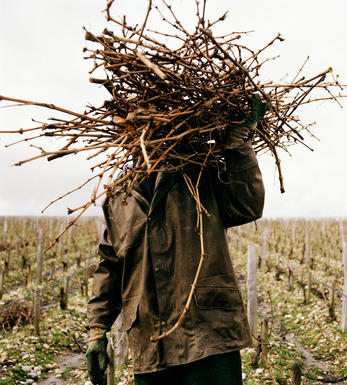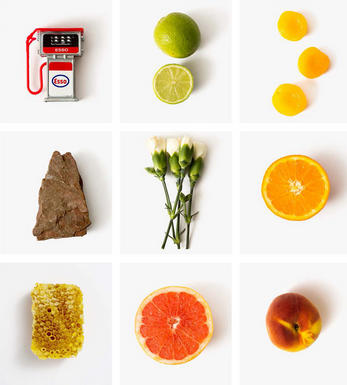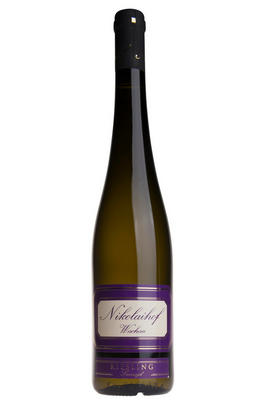
About this WINE

Nikolaihof
Nikolaihof dates back almost 2000 years to Roman times and is the oldest wine estate in Austria – the first documented references to wine production here date back to 470 AD. Within the courtyard of the estate, the remains of the early Christian Agipitus Basilica can be found. Here a synod, convened by the Bishop Pilgrim of Passau, was held in 985 AD.
The earlier Freihof was first referred to in 1075 as the central administrative headquarters of the Passau monastery of St Nikolai. For centuries it remained the political and ecclesiastical central point of the region.
Today a combination of tradition and strict adherence of biodynamic principles lie at the heart of the winemaking philosophy and the Nikolaihof estate is certified with Demeter. The vineyards cover approximately 20 hectares, with plantings of Riesling, Grüner Veltliner, Weissburgunder, Malvasia, Neuburger and Chardonnay, though it is the Rieslings and Grüner Veltliners that have established the strongest following around the world.
The biodynamic philosophy is evident from the vineyard through to the winery and no synthetic sprays, chemical fertilisers or weed killers are used. No genetically-modified enzymes or yeasts and no artificial concentration methods are employed. Naturally occurring yeasts carry out fermentation and winery practices are undertaken only on suitable days in the biodynamic calendar (bottling is only carried out on fruit days). The results of this meticulous approach are wines that express pure varietal character and a distinct sense of place.

Riesling
Riesling's twin peaks are its intense perfume and its piercing crisp acidity which it manages to retain even at high ripeness levels.
In Germany, Riesling constitutes around 20% of total plantings, yet it is responsible for all its greatest wines. It is planted widely on well-drained, south-facing slate-rich slopes, with the greatest wines coming from the best slopes in the best villages. It produces delicate, racy, nervy and stylish wines that cover a wide spectrum of flavours from steely and bone dry with beautifully scented fruits of apples,apricots, and sometimes peaches, through to the exotically sweet flavours of the great sweet wines.
It is also an important variety in Alsace where it produces slightly earthier, weightier and fuller wines than in Germany. The dry Rieslings can be austere and steely with hints of honey while the Vendages Tardives and Sélection de Grains Nobles are some of the greatest sweet wines in the world.
It is thanks to the New World that Riesling is enjoying a marked renaissance. In Australia the grape has developed a formidable reputation, delivering lime-sherbet fireworks amid the continental climate of Clare Valley an hour's drive north of Adelaide, while Barossa's Eden Valley is cooler still, producing restrained stony lime examples from the elevated granitic landscape; Tasmania is fast becoming their third Riesling mine, combining cool temperatures with high UV levels to deliver stunning prototypes.
New Zealand shares a similar climate, with Riesling and Pinot Gris neck to neck in their bid to be the next big thing after Sauvignon Blanc; perfectly suited is the South Island's Central Otago, with its granitic soils and continental climate, and the pebbly Brightwater area near Nelson. While Australia's Rieslings tend to be full-bodied & dry, the Kiwis are more inclined to be lighter bodied, more ethereal and sometimes off-dry; Alsace plays Mosel if you like.



Buying options
Add to wishlist
Description
Nikolaihof dates back almost 2,000 years to Roman times and is the oldest wine estate in Austria. Today a combination of tradition and strict adherence to biodynamic principles lie at the heart of the winemaking philosophy. The results are wines that express pure varietal character and a distinct sense of place.
Situated on a vertiginous slope high above the Danube, this is arguably Nikolaihof's top site. It combines power and finesse in a remarkable weave of complexity. This is a notably rich and textured wine, but one boasting great delicacy as well as intense flavours of lime, pear and white pepper. A superbly balanced wine that shows marked mid-palate weight and a very, very long finish.
wine at a glance
Delivery and quality guarantee